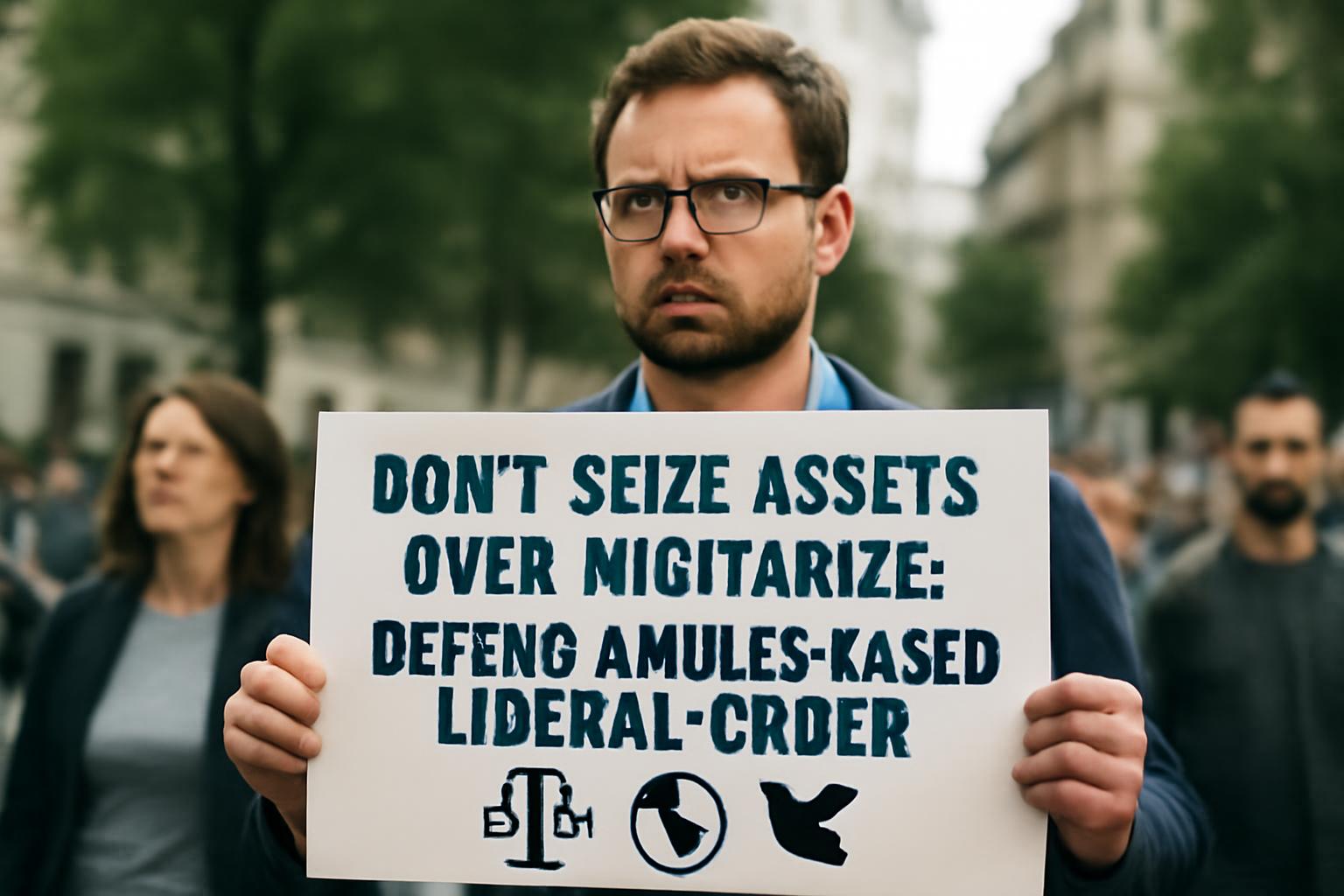Following Washington, the question of how Ukraine might be guaranteed security remains central, with many details still unsettled even as German policymakers sketch potential positions. The foreign minister argues that any guarantee must be backed by action rather than words and that Germany should discuss concrete contributions, even raising the possibility of a peacekeeping role, while acknowledging that deploying troops could overburden the country. A colleague presses further, noting that the conditions for deploying German soldiers are not yet defined and urging stronger pressure on Russia, even proposing that roughly $250 billion of frozen Russian central-bank assets be seized to fund Ukraine. Another voice calls for UN and OSCE involvement before any national guarantees are contemplated and stresses that Ukraine must be able to defend itself. A left-wing deputy rejects NATO combat troops in Ukraine, proposing a UN Blue Helmet mission instead and warning that NATO forces could provoke escalation. The CDU leader, reflecting on the talks, signals progress and says Europe should participate, while insisting Germany bears high responsibility, though it is too early to decide on Bundeswehr involvement.
From where I stand, this is a moment to redress a fundamental misstep in the politics of security: the temptation to treat national defense and international order as a problem of central orchestration rather than a problem of orderly, dispersed knowledge. The calls for concrete deployments, peacekeeping roles, and even the seizure of assets to fund a distant conflict amount to attempts to bend the future to a plan. Yet the knowledge necessary to forecast the outcomes of military guarantees, sanctions, or asset expropriation is dispersed, tacit, and constantly changing. To subordinate a free society to a central improvisation of security guarantees is to trust coercive planning more than the spontaneous coordination upon which liberal order rests.
Seizing hundreds of billions in frozen assets to pay for a war-feeding policy is especially perilous. It treats property rights and the rule of law as tools of convenience rather than restraints that bind governments to predictable norms. It invites retaliation, erodes trust in international finance, and creates incentives for assets to flee, be hidden, or be relocated—precisely the conditions that undermine the very stability a state seeks to bolster. If the aim is to sustain a liberal peace, we should not replace the rule of law with the rule of force or the rule of confiscation. The road to durable security runs through predictable institutions, not expropriations that teach future generations to regard private property as a negotiable instrument of policy.
The NATO versus UN debate reveals a deeper worry: the temptation to turn collective security into a permanent wartime arrangement, with ever-stronger commitments that can drag a nation into conflict beyond its direct interests. A UN Blue Helmet solution may reduce visible exposure to direct military competition, but it also risks becoming either a powerless symbol or a pretext for escalation if not backed by credible, limited force-capacities and steady political support. A cautious, proportionate approach—anchored in diplomacy, sanctions calibrated to maintain incentives for peace, and a defense posture sufficient to deter aggression without becoming an instrument of endless entanglement—seems more in keeping with the liberal order than a perpetual readiness to mobilize for distant battles.
Germany’s “high responsibility” is rightly acknowledged, yet responsibility should demand restraint as well as resolve. It should mean insisting on clear, transparent limits to commitments, resisting the drift toward militarized policymaking that undermines the very conditions of peaceful cooperation—the rule of law, competitive markets, and open exchange. The liberal order flourishes not by grand plans imposed from above, but by the orderly interplay of rules, institutions, and dispersed knowledge that allow communities to adapt to changing circumstances without dissolving into a posture of perpetual emergency.
If there is a lesson here, it is this: peace is best preserved not by multiplying guarantees, but by strengthening the channels through which societies cooperate—markets, legal norms, and international institutions that respect property, contract, and consent. Let us seek a security framework that keeps the state within prudent bounds, encourages voluntary cooperation, and avoids turning peaceful nations into ever-ready combatants. Only then can a durable peace be built, not by seizing the assets of others or by promising ever stricter guarantees, but by fostering the conditions in which cooperation, rather than coercion, remains the simplest and most reliable answer to the dangers we rightly fear.
